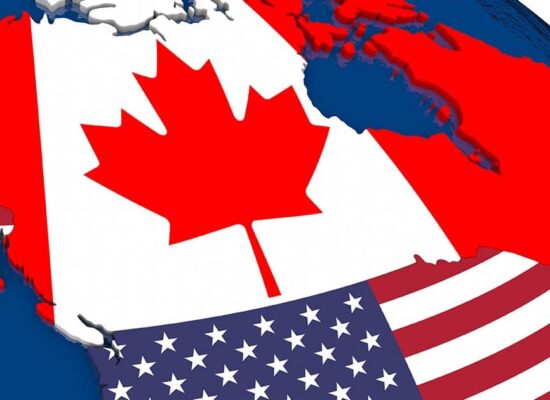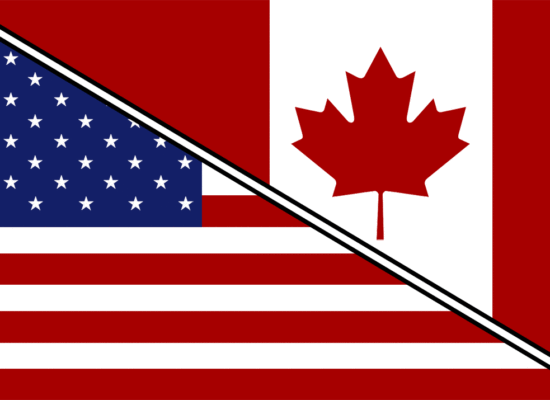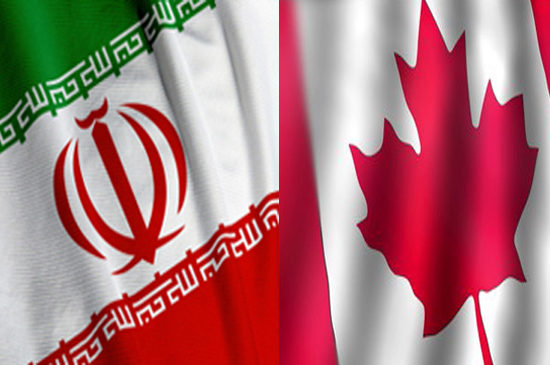Work in Canada: How to obtain a work permit
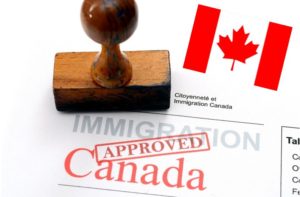
Work in Canada: LMIA Required
Today people can easily change their locations and choose where to live, where to study, where to spend their vacation and where to work in Canada. According to the project U.S. News & World Report, Canada took first place in the 2021 Best Countries Report that analyzed such fields as the quality of life, education and social justice. Life is all about making decisions and if you decide to change your workplace and to move to Canada, then this article is for you. We have gathered everything you should know about getting a work permit in the largest country of North America. The Canadian government has developed a set of rules for newcomers and presents various ways of getting a job in the country, the detailed information and contacts are provided on its official website. Please note that a work permit in Canada is not a temporary resident visa.
First, let’s define what is a work permit in Canada and discuss its types. A work permit is a document that certifies that you are eligible to work legally in Canada. It can be divided into two categories – the one that requires Labor Market Impact Assessment (LMIA) and the one that does not. When you receive a job offer, the employer has to get the official permission for hiring you in order to work in Canada. Work permit contains terms that you must follow, it specifies the field of work, the employer, the territory where you can operate and length of time. There is a list of documents that you need to apply for a work permit in Canada: a job offer letter, a contract, a copy of the LMIA and its number ,etc.
The assessment document (LMIA) is necessary to prove that employing a foreigner would not bring a negative impact on local workers. In other words, the government is trying to protect the interests of Canada’s citizens, their salaries and the existing Labor market. Employment and Social Development Canada (ESDC) is in charge of LMIA but the one who should apply for it is the employer. After application to the assessment, the document is authorized if there are no better candidates among permanent residents than you. LMIA process may take some time because it requires a thorough appraisal of the provided job offer (from 14 to 40 business days).
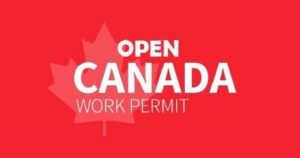
Work in Canada: LMIA-Exempt
Another work permit type in Canada is the one that allows avoiding LMIA Requirement, but there have to be certain reasons such as reciprocal employment, charitable work or cultural benefits. Exchange programs or international agreements are the parts of reciprocal employment when the resident of Canada equally obtains a workplace abroad.
Speaking about exchange programs, we have to mention International Experience Canada. This program is dedicated for the youth mobility for citizens of particular countries only. There are 3 streams of that program: Young Professional, Working Holiday Visa, International Co-Op(internship).
One of the template of international agreements is the Canada-United States-Mexico Agreement or CUSMA (also known as NAFTA). If you are a citizen of one of these countries, the work permit for you does not require LMIA but still have to apply under one of these categories:
- CUSMA Professionals. An applicant must qualify as one occupation from the professionals’ list provided by the agreement. Also, an individual has to prove his or her educational background and work experience in the chosen field.
- CUSMA Intra-Company Transfers. This option includes a company’s internal employee’s transfer to the Canadian branch, the main requirement is that a transferee must have worked in the company for at least 1-3 years.
- CUSMA Investors. An applicant must make a significant investment in the Canadian business.
- CUSMA Traders. An applicant must be employed by either an American or Mexican company and he or she has to grant that 50% of the trade of goods and services is accomplished between Canada and one of CUSMA countries.
As it was mentioned before, the employees of big international companies have the right to transfer to the Canadian branch if necessary. This option is available not only to the participants of the CUSMA (NAFTA) agreement, but to all the individuals who work in the foreign company. The general requirement for these people is to be on the managerial level (i.e. working as executives or specialized workers) and to work in a foreign company not local. The Canadian side of an enterprise also needs to prove its relationship with a foreign partner. Work permits will be given temporarily and an employer will not need to apply for LMIA.
Charitable and religious work is also part of the LMIA exempt program. If the organization is registered with Canada Revenue Agency (CRA) as a philanthropic institution it will significantly facilitate the process to obtain a work permit. If not, then the government agencies may request additional information from the hiring party about intentions and activities. Volunteers do not need a work permit in Canada. Potential employees in religious fields must meet the requirements of the employer and be a part of the chosen community to meet the objectives of advancing spiritual education.

LMIA exemption for cultural and social benefits is a good option for the professionals, who believe they can contribute to Canada’s well-being and reputation. Indeed, there are special requirements such as education, experience in the field, personal achievements, academic prestige and other measures. You can find out if you are eligible for the exemption on the official website. All of the conditions must be followed with a piece of relatable evidence.
Under the terms of social benefits, LMIA exemptions may apply to entrepreneurs who want to start a business in Canada. The business person must confirm that he or she is the only owner of the corporation and prove the business is operating temporarily. Besides, it should be beneficial to Canada, e.g. touristic business which is both seasonal and brings not only money, but also cultural exchange and infrastructural development to the country.
If you speak French and have good comprehension skills, then you can apply for the International Mobility Program and avoid LMIA. This scheme is also a part of a social benefits program because the Canadian government tends to support the French minority in the province of Quebec.

If you are an international student, the country provides the opportunity to get a Post-Graduation Work Permit (PGWP). PGWP is an open work permit in Canada, i.e. the one that does not limit your job specifics. PGWP’s validity depends on the length of a study program but it should be not less than 8 months. The Immigration, Refugees and Citizenship Canada (IRCC) does not guarantee a definite length, each case is unique and the probable length of PGWP may vary from 9 months up to 3 years, depending on the program. To be eligible for PGWP, a student has to provide a transcript and an official letter from the Designated Learning Institution (DLI). The DLI number is essential as it confirms the eligible status of an institution. To get PGWP, a student has to apply within 180 days starting from the date of obtaining a transcript. According to the Immigration and Refugee Protection Regulations, a student must obtain a valid study permit or official approval to study without the requirement of a study permit. If the document is expired the candidates should either:
- to extend stay by applying for a visitor record; or
- to leave the country and apply for PGWP.
Also, if you are spouse of international student in Canada, you can get spouse open work permit in Canada for the same duration, as the study plan of your spouse and come to Canada and work for any employer.
Open work permit in Canada is available not only to students, but also for applicants for permanent residence in Canada, refugees, work permit holders in Canada, who are abused by an employer, temporary residents, family members of PR applicants, and students who cannot meet the cost studies. The decision on each case is made individually depending on the provided details.
Processing time of work permit applications differ and it mostly depends on Labor Market Impact Assessment. All of the candidates for a work permit must have no criminal records and be prepared to provide a police clearance certificate. Besides, foreigners can be asked to prove their financial ability to take care of themselves during their stay in Canada. You can use the Document Checklist to gather all the necessary documents to apply for a work permit. You should remember that obtaining a work permit does not guarantee that you will not be fired. The employer has every right to do this if he decides that he no longer needs your services. In this case, you must leave the country, or urgently find a new employer and apply for a new work permit.
In case, if you need help with work permit to Canada and you are eligible under legal program of Canada Immigration, please fill in application below or contact us directly.
Work in Canada:Related Articles
Immigration Consultation in Toronto
Immigration Consultation in Toronto: A Complete Guide Toronto, Canada’s largest and most diverse city, is a major hub for newcomers from around the world. With its multicultural fabric, world-class economy, and high standard of living, […]
EB-2 NIW Visa for Canadians
EB-2 NIW Visa for Canadians: A Comprehensive Guide Introduction The United States has long been a destination of choice for talented professionals and entrepreneurs seeking new opportunities. For Canadian citizens, proximity, cultural similarities, and economic […]
Immigration to Canada for US Citizens
Immigration to Canada for U.S. Citizens Introduction Canada and the United States share not only the world’s longest undefended border but also close economic, cultural, and historical ties. For many Americans, Canada is an appealing […]
Visa and Immigration in Canada for British Citizens
Visa and Immigration in Canada for British Citizens Introduction Canada and the United Kingdom share a rich history, strong diplomatic ties, and deep cultural connections. As members of the Commonwealth, citizens of both countries have […]
Visa and Immigration in Canada for Japanese Citizens
Visa and Immigration in Canada for Japanese Citizens Introduction Canada and Japan share a long-standing relationship built on diplomacy, economic ties, and cultural exchange. Every year, thousands of Japanese citizens travel to Canada for education, […]
Immigration to Canada from Iran
Immigration to Canada from Iran: A Comprehensive Overview Introduction Over the past few decades, Canada has become a beacon of hope for many Iranians seeking a better quality of life, economic opportunity, political stability, and […]


